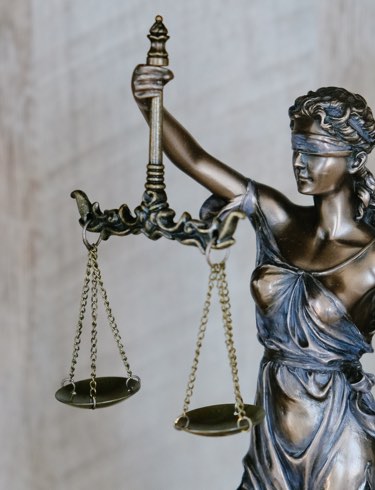Weighing the Pros and Cons of only focusing on the Pros and Cons.

By Michael Dauphinee / / Adventure
Ever been in that meeting. The one where everyone else is smarter. Where people were clearly informed ahead of time. And you’re there, wondering how you got there and if they know you don’t belong. You’re spinning. Trying to gather the information, frame the game, all while not looking like an idiot. You sit quietly, small, a statue, hoping their vision is based on movement, like a T-Rex’s. But they spot you, take a breath and, pressing the clutch in the conversation, they ask, “So what do you think about MOAB?”
This was my Friday night. It’s not unusual to talk current events with colleagues at the office or friends at a cafe. But this was no meeting. This was dinner in Kabul, at an international NGO guest house, and the people around the table were from 5 countries, had nearly a dozen degrees between them and spend their time advising presidents and prime ministers on how to build countries from scratch. And the US had just dropped the largest conventional bomb ever created two hours away from our dinner table.
“So what do you think about MOAB, Michael?”
At that moment, all I was thinking about MOAB was that my grandmother was going to be really frightened when she saw the news. My social media channels were going to show serious spikes of follower engagement and I wasn’t sure if I was scared or excited to be in a war zone for another week. None of these thoughts seemed what they were looking for.
In my insecurity, I weighed my real options: MOAB- good, or MOAB- bad. I considered my audience, took a breath and said,”Mmm…MOAB- bad?”
That’s what we do in insecurity. Break the world into two choices: good or bad. The world is easier that way. And not just with bombs either. We do it with just about everything. From the profound to the mundane, we’ve discovered the quickest decision is the most black and white.
That’s a great movie. It’s a terrible movie.
She’s a good employee. He should have never been hired.
Ideas, values, policies …all either good or bad.
Of course, there isn’t just one reason for why we think this way. But thinking about the world from my view this week, I’m seeing that our insecurity and fear push us to dualism, which actually ends up making us more afraid.
Driven by our brain’s natural hatred of cognitive dissonance, intellectual dualism tells us that the world can be understood as one of two things. It’s much easier than forming thoughtful, complex opinions. Just decide which box to stuff it into and move on. Good or Bad. Help or Hurt. Smart or Stupid. Righteous or Evil. Foolish or Wise. Right or Wrong. Our entire world is built on “or” statements.
I’m the king of these questions. I’ve realized it gives the perception of clarity but rarely holds up to scrutiny. During a coaching conversation with an Afghan government advisor last week, I asked about the ramifications of a recently executed peace agreement with a former warlord/insurgent leader. “Was that a good or bad idea?” I asked. He said it was neither; it was a choice.
I’d never considered that. Making peace or continuing war had negative consequences on both sides, so a dualistic framework was useless. They had to assess, make the best choice given the realities of the moment and then do it all again.
Dualism is simple; it makes us feel safe. In an increasingly complex world, we’re ravenous for safety. It’s not malicious. It happens naturally. Consider the words that first come to mind when I ask you to finish the following sentences.
Trump supports are…
Democrats are…
Muslims are…
Gun owners are…
Gay people are…
Immigrants are…
Christians are…
How complex were your sentences? How easily did your brain grab one or two words? Any chance those groups might be more than what your gut responses perceive?
Unfortunately, it’s not just these groups we compartmentalize. We do it with our co-workers and our families. We even do it to ourselves. We’re navigating, wanting answers, reaching for clarity. We slap things in a box and move on. And here’s the deceptive thing about dualistic thinking: it mostly works. It makes us feel good and simplifies the world …right up until it stops working. And then it’s a recipe for disaster when, all of a sudden, we discover the world doesn’t fit two boxes.
I’m all for clarity, and I love the simple, but dualism is actually neither because it’s not true. And in a world desperate for real solutions, astonishing courage, and sustainable hope, truth is a must.
Here, in Afghanistan since MOAB, I have heard the following comments directly from Afghans and expats who are closer to the situation than you can imagine:
- It’s horrific; you cannot drop a bomb on your own country.
- It’s incredible; they should drop more on those bunkers it will probably save lives.
- The world is so upset about MOAB because it was all one bomb. Why don’t they care that IS has been lobbing bombs at the nearby village for months?
- It’s undermining a sovereign government.
- It’s sensationalism; the papers chose the words “non-nuclear” on purpose.
- You cannot bomb your way out of a political conflict.
So what do you think about MOAB, Michael?
Here’s what I should have said: “It’s clear there’s a lot I don’t know. Death is terrible. Violence is a dangerous tool. Security is a complex issue. I hope it was the right decision. I don’t really know.”
May you have more courage than I did in the face of insecurity and reach for the real truth. Not just the one that makes you feel good.
Michael D.



Leave a Reply